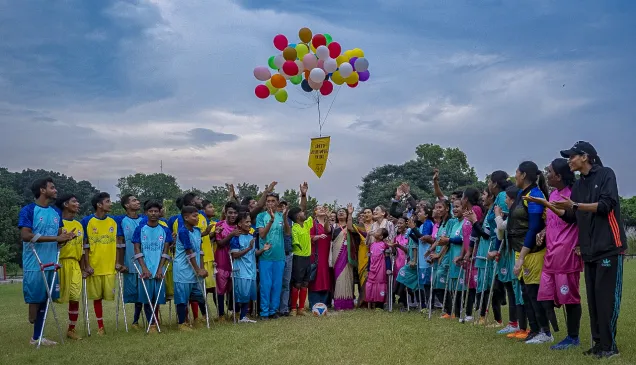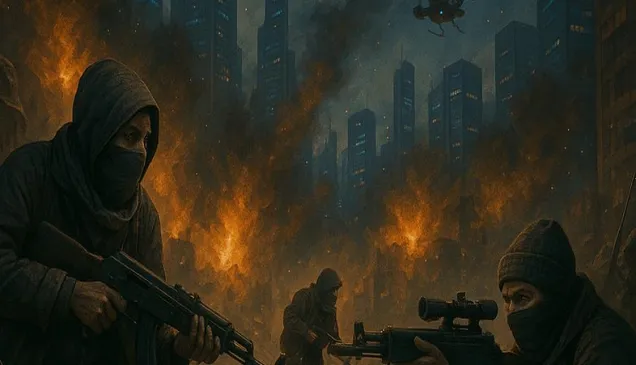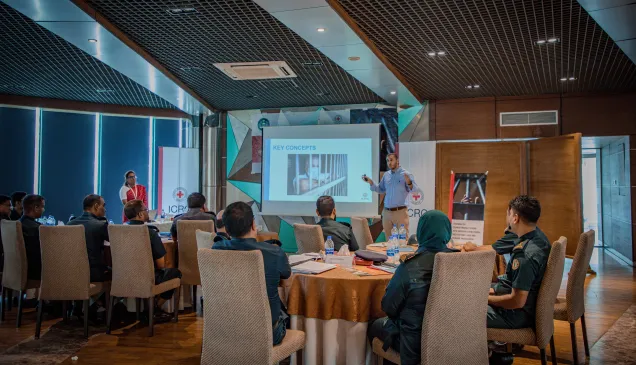From the classroom to the courtroom: The journey of Bangladesh law students advocating for international humanitarian law
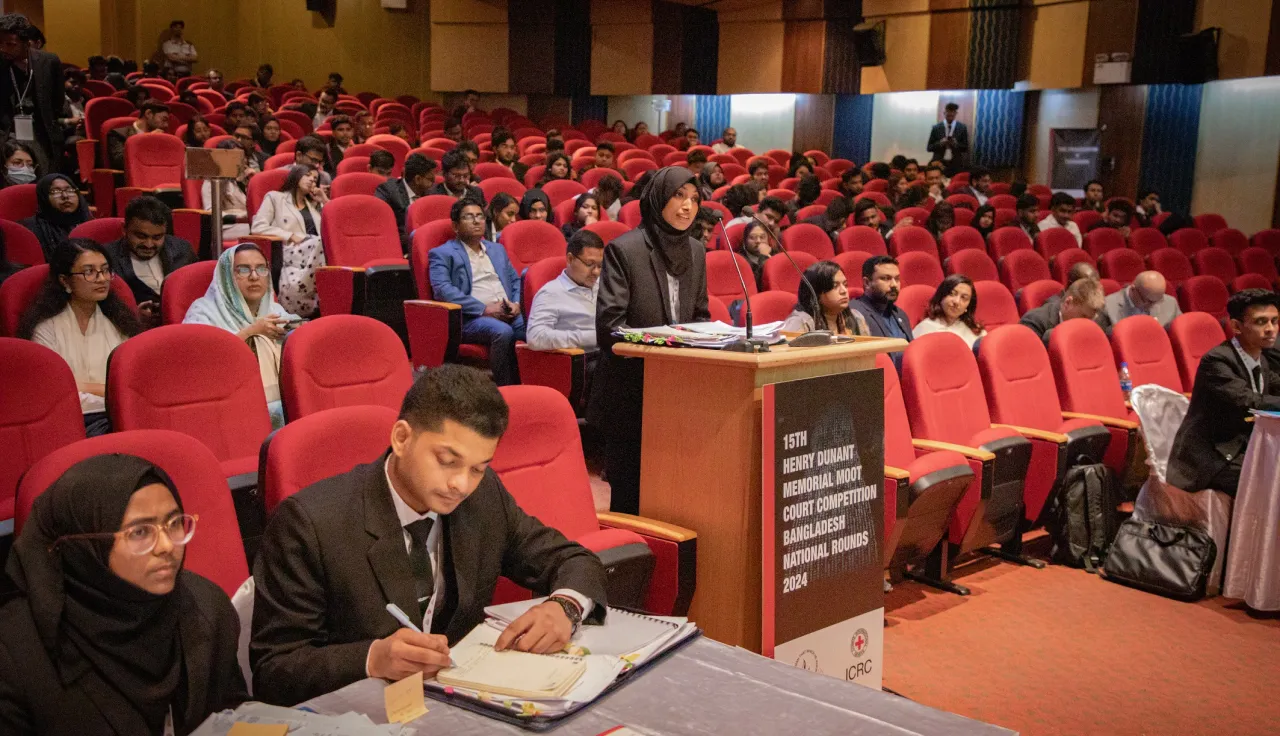
For many law students, mastering the complexities of international law can feel like an overwhelming challenge. For the participants of the 15th Henry Dunant Memorial Moot Court Competition, however, their passion for humanitarian law and humanity brought them together to engage in one of the most rigorous and rewarding competitions in Bangladesh.
Over two days, students from universities across the country competed in a simulated court, facing legal dilemmas rooted in international humanitarian law (IHL), also known as “the law of armed conflict”. These future lawyers tackled issues such as the protection of civilians during armed conflict, the responsibilities of warring parties and the conduct of hostilities, all critical principles enshrined in the Geneva Conventions, which celebrated their 75th anniversary this year.
While only one team will go on to represent Bangladesh in the Asia-Pacific regional rounds in Hong Kong next year, all participants leave the competition with invaluable experience, a greater understanding of humanitarian law and a deepened commitment to protecting human lives and dignity in times of war.
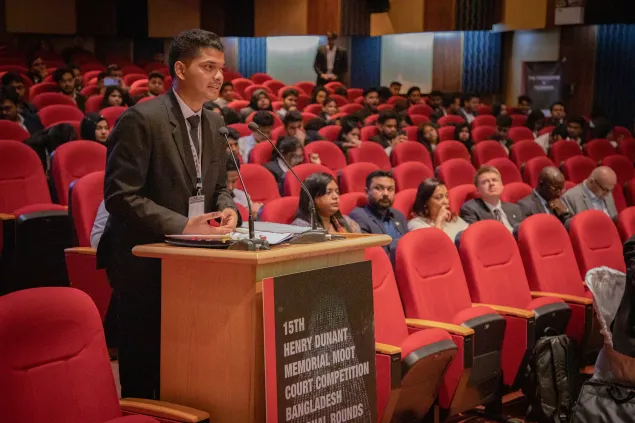
A passion for humanitarian law
For many participants, the journey to the Henry Dunant Memorial Moot Court Competition began long before they entered the courtroom. “IHL is a perfect match between my desire to help people and my passion for justice. This competition has been a way to bring that passion to life,” explained Riasat Azim, a student at Eastern University.
For others, the competition offered a platform to translate abstract legal theory into real-world application. Rezoan Asraf, member of the winning Dhaka University team and best mooter, reflected on the journey leading up to their win.
It’s one thing to learn about the Geneva Conventions in class, but it’s a completely different experience when you have to argue how those laws apply in modern conflict situations. This moot court taught us to think critically about the legal and humanitarian issues that arise in war, and how we, as future lawyers, can advocate for the most vulnerable.
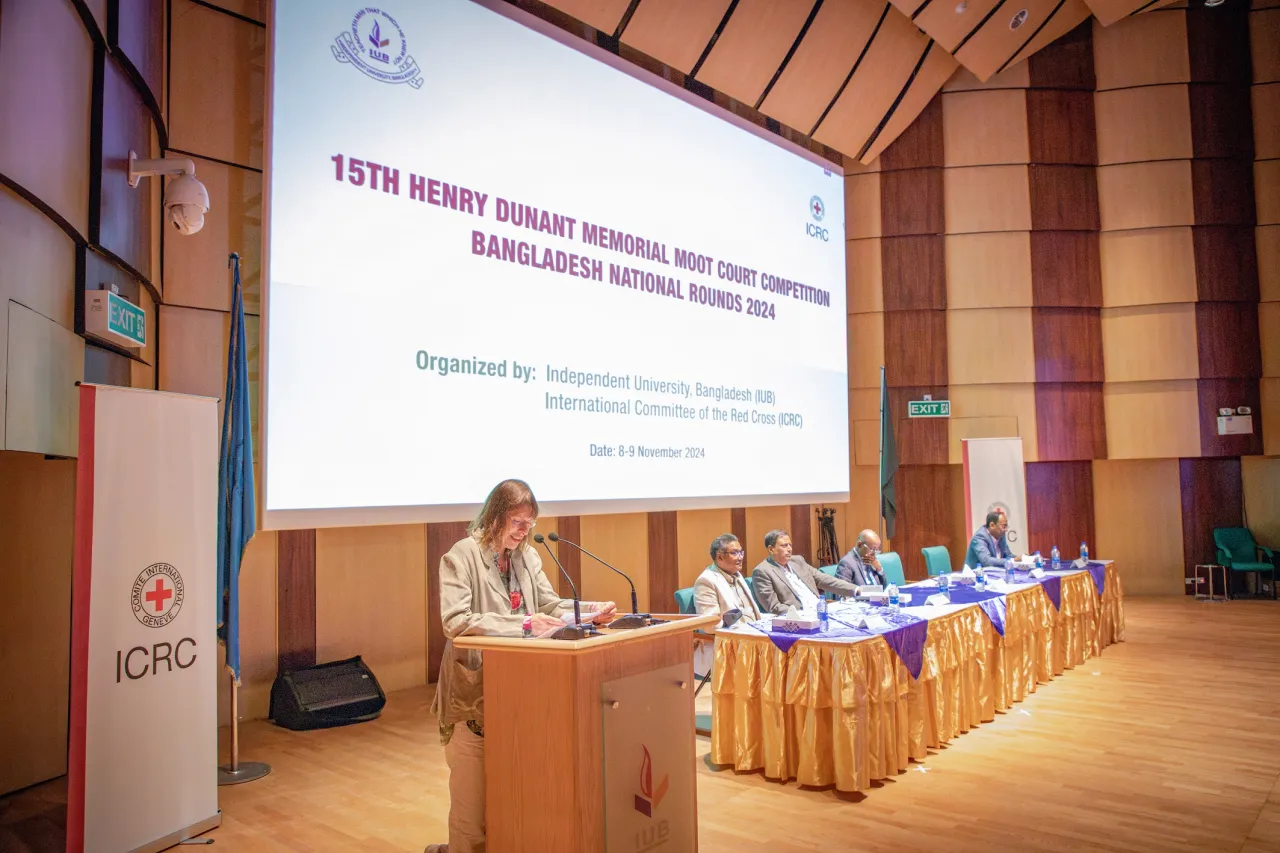
The role of the moot court in shaping future humanitarians
For many, the Henry Dunant Memorial Moot Court Competition, organized by the International Committee of the Red Cross (ICRC) in collaboration with Independent University, Bangladesh (IUB), is more than just a competition. It is a transformative experience that sets the stage for future careers in law, diplomacy and humanitarian work.
Agnès Dhur, head of the ICRC delegation in Dhaka, emphasized the importance of such platforms in shaping the next generation of IHL advocates.
The role of lawyers in upholding international humanitarian law is vital, especially as conflicts become more complex. This moot court competition tests students’ advocacy skills and helps them understand the real-world implications of the law, inspiring them to become defenders of humanity in times of crisis.
The competition also serves as an educational tool, bridging the gap between academic study and practical application. The students are exposed to scenarios that require deep critical thinking, research and teamwork, skills they will need as future legal professionals advocating for justice in times of conflict.
Acting vice chancellor of IUB, Khandker Md. Iftekhar Haider, echoed this sentiment. “The Henry Dunant Moot Court allows students to apply what they’ve learned in the classroom to complex, real-world problems. Through this process, they gain invaluable experience that will help shape their future careers in law and beyond,” he said.
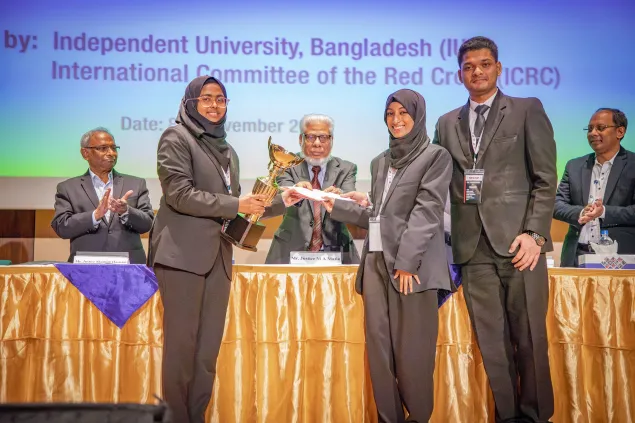
Personal growth and a shared sense of purpose
For many participants, the moot court competition was also a deeply personal journey of growth. “When I first signed up, I was nervous about how I’d perform. But as I started preparing and working with my teammates, I gained confidence in my ability to advocate for the law and for humanitarian principles. Whether we win or not, I feel like I’ve grown so much, not just as a student but as a future lawyer who wants to make a difference,” said Anika Tahsina, Dhaka University team member.
“What makes this competition special is that even though we’re competing, we’re all here for the same reason: to promote humanitarian law. There’s a real sense of shared purpose, and we’ve all learned from each other along the way,” said Mehanaj Rahaman, runner-up from Eastern University.
As the national rounds come to a close, the journey is only beginning for the winning Dhaka University. The team will now prepare to represent Bangladesh at the Asia-Pacific regional rounds in Hong Kong in 2025, where they will face off against other top law students from across South Asia and the Asia-Pacific region. The experience promises to be a challenging yet rewarding one, as the Bangladesh team will be competing on an international stage. “We’re excited about the Asia-Pacific rounds. It’s a chance for us to take everything we’ve learned here and put it to the test against the best teams in the region. It’s a huge honour to represent Bangladesh, and we’re going to do everything we can to make our country proud,” said Jarin Anjum Tasnim, Dhaka University team member.
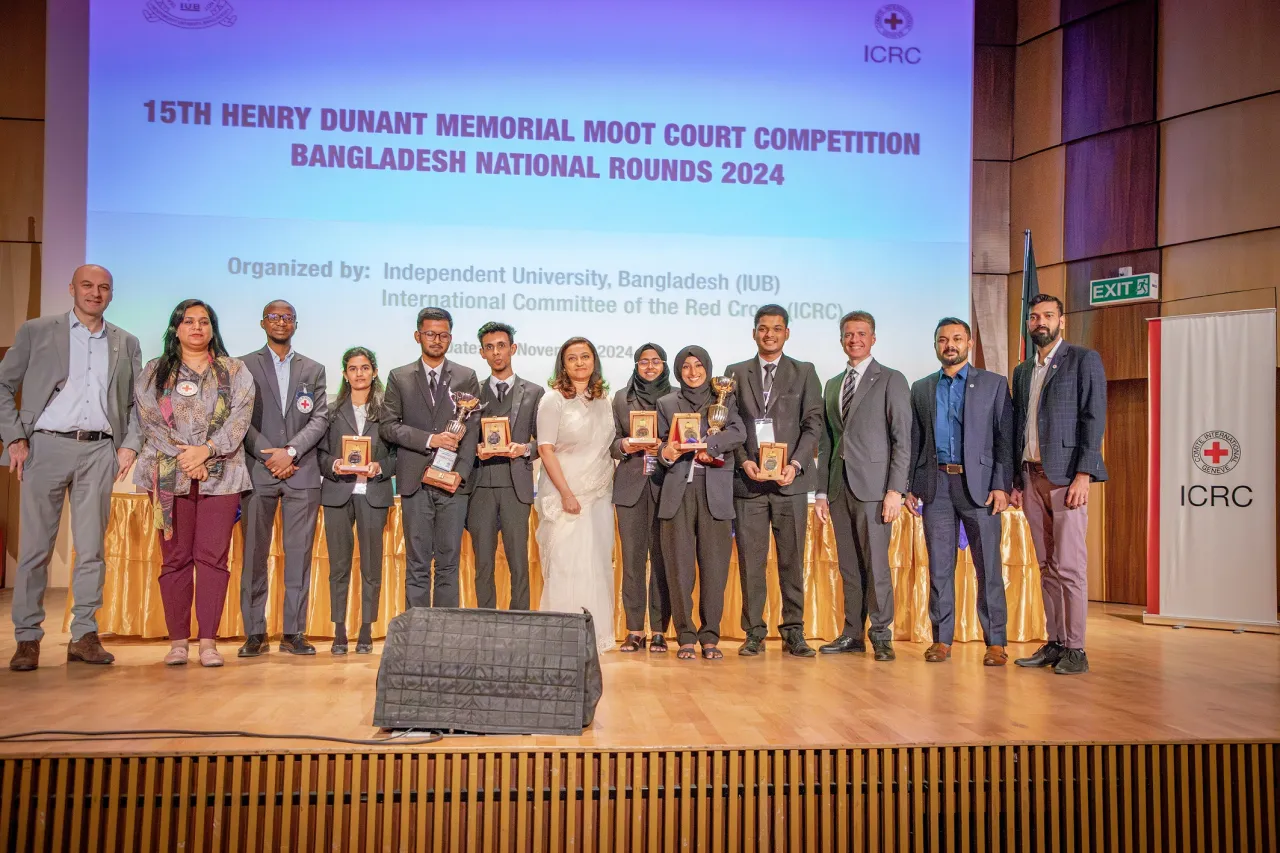
The future of IHL advocacy in Bangladesh
The Henry Dunant Memorial Moot Court Competition has played a key role in raising awareness of IHL in Bangladesh. Through the competition, students have gained a deep understanding of the Geneva Conventions, their application in modern warfare and the critical role lawyers play in upholding these laws.
The ICRC continues to support similar platforms to ensure that the next generation of legal professionals is well-equipped to advocate for humanitarian principles. “By engaging with the principles of humanitarian law, these students are helping to shape a more principled and humane world. We’re incredibly proud of their achievements and look forward to seeing what they’ll accomplish in the years to come,” said Agnès Dhur, summarizing the broader impact of the event.
As this 15th edition of the competition concludes, the legacy of IHL education in Bangladesh grows stronger, driven by the passion and dedication of the students who advocate for humanity and dignity for civilians on the front lines.

